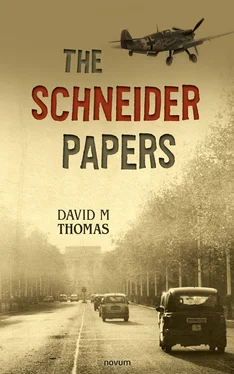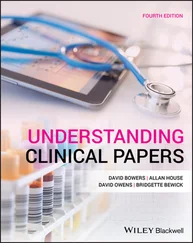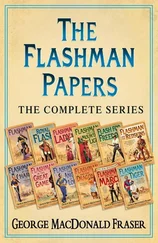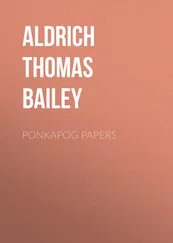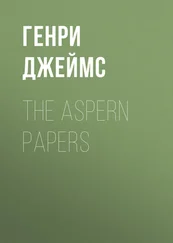Mason had an easy interview at the glass window. He was a journalist seeking to write about last month’s Olympics. ‘Why not come when it was on?’ asked the grey uniformed Unteroffizier, frowning as he looked through the false passport.
‘I have been asked to write about its obvious success and its positive influence on the people,’ was the reply.
‘Yes, it was a great success, all due to the Führer and National Socialism,’ agreed the Unteroffizier as he was just about to endorse Mason’s passport with a two week tourist visa stamp, when his silent observer partner sitting behind him and dressed in a black uniform, reached over and snatched the passport. He slowly assessed Mason’s face then the passport picture, then back to Mason then back to the passport. He flicked through the visa pages, pausing now and again to examine, re-examine and turn the passport in his hands for easier visa dates reading, then with a satisfied, if not disappointed grunt, gave it back for stamping. Mason remembered: never deliberately try eye contact with officials, acknowledge subservience though a slight bow of the head. It usually works.
After retrieving his suitcase, Mason remembered the two strangers on the plane. They had not got off at Amsterdam. Where are they? What was that staring business on the plane all about? He surreptitiously looked around, but he couldn’t see them anywhere. The trailer carrying the bags from London had been emptied by the baggage handlers onto the floor, and passengers were slowly filtering through from Arrivals and busily identifying and picking up their own. Still no sign of them.
Anyway, got my case, now for customs, airport bus, hotel and a drink. In that order, he said to himself.
The Lufthansa bus was waiting, engine running, behind the nearly empty taxi rank. He had bought a single ticket from the bus shuttle booth next to the Dresdner Bank currency exchange bureau. He gave the bureau a miss; he had been supplied with enough Reichsmark currency to get him through a few days of nominal expenditure. Whatever that meant, Mason thought, thinking of the Adjudant’s remark as he had meticulously counted out Reichmarks.
The bus was half full of mostly families and loud children, and ready to depart. Was there a holiday? He couldn’t remember. The start of Oktoberfest was the only festive period he remembered that started in late September, and was in Munich! He held this thought walking down the aisle, head bowed, hat off, half smiling to the seated passengers as he passed. He settled down at the back, his travelling preference. He was on his own; the driver had taken his suitcase off him at the front steps and pushed it into the luggage space that ran mostly the whole length of the bus under the seating compartment.
Mason had bought a ticket to Potsdamer Banholf, one of the main Berlin railway stations. His hotel was easily within walking distance. The bus moved off with a jerk and crunch of gears. He didn’t recognise any passengers from the London flight.
He remembered the last time he was in Berlin, five years ago, in 1931. The only change so far, he reflected, was the unpalatable taste of tension in the air. Black and grey uniforms everywhere; the wearers exuded an arrogance, and he decided, an aura of deliberate intimidation. Quite deliberate, he thought. A feeling of control. Yes, that was it. Control. He remembered the expressionless faces at the passport control queues. Frightened. ‘What has happened here?’ he whispered quietly to himself.
The distance from Templhof airport to the railway station was, as the crow flies, only four kilometers. The bus pulled out of the parking bay and through the perimeter gate manned by grey uniformed airport police, who watched impassively as it slowly passed through, an acknowledgement nod to the driver from one of them. The driver turned left and joined the main artery road to Berlin. Mason knew exactly where he was; they would soon pass through the suburb of Neukölln. He had been there as a boy, Britz Palace, he remembered, and his mother admonishing him for running though one of the halls, a long time ago. Neukölln was famous for its Protestant history – refugees fleeing religeon persecution in Bohemia settled here a long time ago. The bus took a new bypass route so all he could see was the spire of the church, he couldn’t remember its name.
What he could see, way in the distance, from the back window was the west side of the Hufeisensiedlung, or the ‘Horseshoe Estate’. A social building project, one of many, built in the 1920s in response to a desperate housing need, especially in the working class district of Neukölln. These housing schemes were before their time, he thought. Where in England could you find their equal? The bus stopped in Kreuzberg, next to the U-Bahn and the bridge over the Landwehr Canal. A few passengers got off. The traffic had slowly thickened from Neukölln, as did the increased tempo of city living in the capital of the Reich. White, yellow and green-painted buses and street trams, laden-down, open-backed delivery lorries, the occasional horse and cart weaving in and out of stationary obstacles, pedestrians crossing the street, some walking cautiously, some skipping in bursts as they negotiated their way across Wilhelmstrasse. He smelt cigar smoke and burnt coffee and exhaust fumes. Distinctive. He inhaled deeply. Yes, he was an urban man, he happily agreed with himself – except, of course, when he was in the country. He smiled at the contradiction.
He decided that the airport bus should soon turn left, and if it had continued up Wilhelmstrasse he would land at its junction with the Unter den Linden and the British Embassy. The airport bus did turn left, and now it’s a stright run up to Potsdamer Platz and the station, he said to himself, his Berlin navigation slowly coming back to him. He passed an imposing granite office building on the right with a giant swastika flag hanging down from the third floor. This brought him back to why he was here in Berlin. He had passed into another reality. Herr Madden, the tourist on a bus, shifting in his seat, looking to the left, then right, through the back window and straight ahead down the aisle and through the driver’s windscreen. Traffic was at a virtual standstill at Potsdamer Platz. Priority was given to buses and trams, and the traffic policeman finally waved permission for the queue of traffic for the railway station to slowly negotiate the left hand turn, around the clock tower, into the waiting bay outside the main entrance to Potsdamer Banholf. A traffic light tower was built in 1924 to control the traffic around the platz. The coloured lights were to mesmerise and instruct drivers as to when to stop and when to go. It was not working today. A traffic policemen on a wooden platform was today’s regulator.
Mason got ready to leave his seat, and he welcomed himself to the Platz. The Piccadilly Circus of Berlin. Opposite he saw the imposing brown bricked Fürstenhof Hotel, with its purple blinds shading the al fresco café society Berliners from the now setting sun.
He retrived his suitcase from the luggage compartment before the driver could get to it. He thanked him for the ride, and walked briskly towards the station.
First thing to do was to linger and mingle and check for followers. He had consciously chosen light grey as his German travel uniform; inconspicuous, ordinary and plain. The station concourse was busy with commuters heading home, the usual jostling and dodging busy people with minds elsewhere. He stopped to gaze through a newsagent’s window and there, for an instant, in the reflection, he saw someone he recognised, thought he caught a glimpse of the man in the beige overcoat, from the flight. He went cold and then felt a hot flush as life-preserving adrenaline is released into the blood stream. He moved slowly and deliberately into a seemingly glued together, snake-like lateral undulation of new commuters entering the station from another entrance. He quickened his movement as best he could in the mass of commuter humanity. Going this way towards a platform, then changing direction and heading against the tide for another. He decided the best mode of attack was to retreat, and pushed and swivelled his way against the commuter traffic to the south exit. He repeatedly encouraged himself to calm down, and walked briskly out into the open and onto Köninggätzer Strasse towards the sister railway station, the Anhalter Banhhof.
Читать дальше
